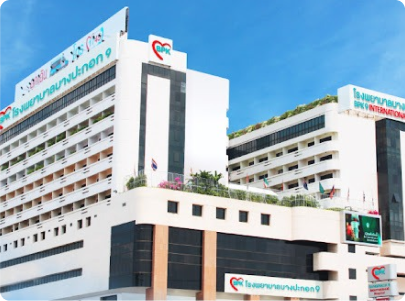Proximal Hip Replacement
As a specialized medical solution, Proximal Hip Replacement combines technological innovation, clinical expertise, and patient-centered strategies to optimize recovery, minimize complications, and ensure better overall healthcare experiences.
Get Expert Consultation
Speak with our medical travel experts to get personalized guidance for your procedure
✓ No commitment required • ✓ Expert guidance • ✓ Free consultation

Book Your Free Medical Consultation
Get expert advice—free and easy. Just fill out the form to start your health journey!
Key-Insights for
Proximal Hip Replacement
Procedure Time
typically takes around 2-3 hours from start to finish
Recovery Period
most people can resume normal activities within 6-8 weeks after surgery
Expected Results
significant reduction in pain and improved mobility, allowing for a better quality of life
Ideal Candidates
people with severe hip pain or stiffness, especially those who have tried non-surgical treatments without relief
Proximal Hip Replacement
As a specialized medical solution, Proximal Hip Replacement combines technological innovation, clinical expertise, and patient-centered strategies to optimize recovery, minimize complications, and ensure better overall healthcare experiences.

People seek these procedures for various reasons:
Aesthetic Enhancement
Eliminate severe hip pain that interferes with your daily life
Corrective Purposes
Regain mobility and independence you once had
Functional Restoration
Improve your overall quality of life by reducing stiffness and discomfort
Things to Check Before Treatment
- •Discuss your medical history with your doctor, including any previous hip injuries or surgeries
- •Share your current medication list and supplement routine with your healthcare team
- •Have a thorough physical examination to identify any potential issues that may affect the surgery
- •Understand any specific instructions for preparing for the procedure, such as fasting or stopping certain medications
- •Research your insurance coverage and hospital policies before traveling abroad
Potential Risks
- •Blood clots or deep vein thrombosis (DVT)
- •Infection or wound healing issues
- •Nerve damage or numbness around the hip area
- •Blood loss or anemia
- •Reaction to anesthesia or other surgical complications
How to Choose the Right Country, Clinic, and Surgeon
Do's
Verify surgeon credentials (e.g. ISAPS, JPRAS)
Ask for before-after photos
Check language barriers
Review aftercare and follow-up options
Consider local laws on medical malpractice
Don'ts
Don't Choose a Clinic Based Only on Price
Don't Rely Solely on Social Media or Influencers
Don't Ignore Language Barriers
Don't Rush Into Surgery Without Research
Don't Assume You Can Fly Back Immediately
CureMeAbroad Services Are Absolutely Free.
You pay same rates for treatments as in the hospital's original price list.
CureMeAbroad Services Are Absolutely Free.
You pay same rates for treatments as in the hospital's original price list.


Book Your Free Medical Consultation
Get expert advice—free and easy. Just fill out the form to start your health journey!
Proximal Hip Replacement
Frequently Asked Questions
This procedure involves specific medical techniques tailored to address particular health conditions. Your doctor will explain the detailed process based on your case.

Help Me Plan My Treatment Abroad
End to End Treatment Planning Specifically curated as per your need. Just a Call away


Help Me Plan My Treatment Abroad
End to End Treatment Planning Specifically curated as per your need. Just a Call away


Book Your Free Medical Consultation
Get expert advice—free and easy. Just fill out the form to start your health journey!



